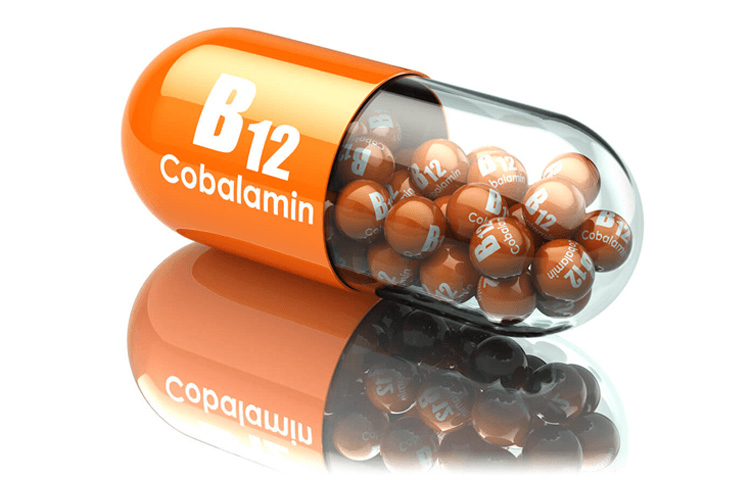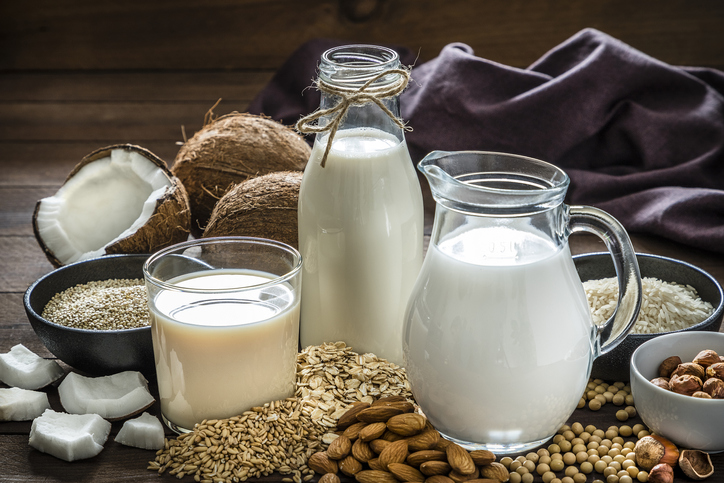Vitamin B12 is an essential nutrient that plays a crucial role in maintaining overall health. It is particularly important for nerve function, red blood cell production, and DNA synthesis. Despite its significance, many people, especially vegetarians and vegans, suffer from Vitamin B12 deficiency, which can lead to serious health issues.
Why is Vitamin B12 Important?
Vitamin B12 supports various bodily functions, including:
- Red Blood Cell Formation: It helps in the production of healthy red blood cells, preventing megaloblastic anemia, which can cause fatigue and weakness.
- Nerve Health: It is essential for maintaining the myelin sheath that protects nerve fibers, ensuring proper nervous system function.
- Brain Function: Adequate levels of B12 are linked to improved cognitive function and a reduced risk of neurodegenerative diseases.
- Energy Production: B12 plays a key role in converting food into energy, combating fatigue and weakness.
- Heart Health: It helps regulate homocysteine levels, reducing the risk of heart diseases.

Causes of Vitamin B12 Deficiency
Vitamin B12 deficiency can arise due to various reasons, including:
- Dietary Deficiency: Since Vitamin B12 is naturally found in animal-based foods, vegetarians and vegans are at a higher risk.
- Malabsorption Issues: Conditions such as pernicious anemia, Crohn’s disease, celiac disease, and low stomach acid can hinder B12 absorption.
- Aging: Older adults may have decreased stomach acid production, leading to poor absorption of B12 from food.
- Medication Use: Long-term use of antacids, metformin, and certain antibiotics can interfere with B12 absorption.
- Gastrointestinal Surgeries: Procedures like gastric bypass surgery may reduce the body’s ability to absorb B12.
Symptoms of Vitamin B12 Deficiency
A deficiency in Vitamin B12 can manifest in various ways, including:
- Fatigue and weakness
- Pale or jaundiced skin
- Shortness of breath and dizziness
- Nerve problems like tingling or numbness in hands and feet
- Difficulty walking or balance issues
- Memory problems and cognitive decline
- Mood changes, including depression
Recommended Daily Dosage of Vitamin B12
The recommended dietary allowance (RDA) for Vitamin B12 varies by age, gender, and life stage:
- Infants (0-6 months): 0.4 mcg
- Infants (7-12 months): 0.5 mcg
- Children (1-3 years): 0.9 mcg
- Children (4-8 years): 1.2 mcg
- Children (9-13 years): 1.8 mcg
- Teens & Adults (14+ years): 2.4 mcg
- Pregnant Women: 2.6 mcg
- Breastfeeding Women: 2.8 mcg
For individuals with a deficiency, higher doses may be required, typically through supplements or injections as prescribed by a doctor.
What to Do if You Have a Vitamin B12 Deficiency?
If you suspect a Vitamin B12 deficiency, consider the following steps:
- Get Tested: A simple blood test can measure your B12 levels.
- Include B12-Rich Foods: Increase intake of B12-fortified foods or supplements.
- Take Supplements: Vitamin B12 supplements, available in tablet, capsule, or sublingual forms, can help maintain adequate levels.
- Seek Medical Advice: If you have absorption issues, your doctor may recommend B12 injections for better absorption.
Vegetarian Sources of Vitamin B12 in Indian Cuisine
Although Vitamin B12 is predominantly found in animal products, vegetarians in India can obtain it from the following sources:
-
Dairy Products:
- Milk: Cow’s and buffalo milk are rich sources of B12, commonly consumed in Indian households.
- Paneer (Cottage Cheese): Frequently used in curries and snacks, paneer provides a good amount of B12.
- Curd (Dahi): Homemade or store-bought curd is beneficial for gut health and contains B12.
- Ghee and Butter: Though consumed in small quantities, these contribute to daily B12 intake.
-
Fortified Foods:
- Fortified Milk and Dairy Alternatives: Many brands in India offer fortified milk and dairy-free alternatives like soy or almond milk.
- Fortified Cereals and Flour: Some breakfast cereals and wheat flours in India are enriched with B12.
- Fortified Nutritional Yeast: Although less common in Indian households, it can be sprinkled on dishes for added nutrition.
-
Fermented Foods:
- Idli, Dosa, and Dhokla: Traditional fermented foods may contain small amounts of B12 due to bacterial action.
- Pickles (Achaar): Certain homemade pickles with natural fermentation may contribute to B12 intake.
-
Ayurvedic and Herbal Supplements:
- Some Ayurvedic formulations and herbal products enriched with natural B12 sources are available in India.
Since natural vegetarian sources of B12 are limited, supplementation or fortified foods are highly recommended for those following a plant-based diet in India.

Conclusion
Vitamin B12 is an essential nutrient for energy production, brain function, and overall health. Deficiency can lead to serious health complications, but it can be prevented through proper dietary choices, supplements, and fortified foods. Indian vegetarians, in particular, should focus on dairy, fermented foods, and fortified products to ensure sufficient B12 intake. If you suspect a deficiency, consulting a healthcare provider for testing and appropriate treatment is crucial.
FAQs
1. Can vegetarians get enough Vitamin B12 naturally?
Vegetarians can obtain B12 from dairy products, but since plant-based sources are very limited, fortified foods or supplements are recommended.
2. How can I check if I have a Vitamin B12 deficiency?
A blood test measuring serum B12 levels, methylmalonic acid (MMA), and homocysteine can confirm deficiency.
3. What are the long-term effects of Vitamin B12 deficiency?
Long-term deficiency can lead to nerve damage, cognitive decline, anemia, and an increased risk of heart disease.
4. Can too much Vitamin B12 be harmful?
Excess B12 is usually excreted in urine, and toxicity is rare. However, high doses should only be taken under medical supervision.
5. Are there any plant-based sources of Vitamin B12?
Natural plant-based sources are very limited, but some fermented foods and fortified plant-based products can provide B12.
Reliable Sources
-
Allen, L. H. (2008). "How common is vitamin B-12 deficiency?" The American Journal of Clinical Nutrition, 89(2), 693S-696S. https://doi.org/10.3945/ajcn.2008.26947A
-
Watanabe, F., & Bito, T. (2018). "Vitamin B12 sources and bioavailability." Experimental Biology and Medicine, 243(2), 148-158. https://doi.org/10.1177/1535370217746612
-
Pawlak, R., Lester, S. E., & Babatunde, T. (2014). "The prevalence of cobalamin deficiency among vegetarians assessed by serum vitamin B12: A review of literature." European Journal of Clinical Nutrition, 68(5), 541-548. https://doi.org/10.1038/ejcn.2014.46
-
Hunt, A., Harrington, D., & Robinson, S. (2014). "Vitamin B12 deficiency." BMJ, 349, g5226. https://doi.org/10.1136/bmj.g5226





